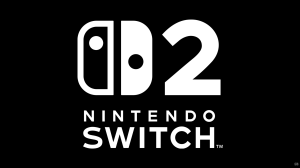Earlier this week, CBS and Viacom announced plans to merge. The reunification of these two companies brings Star Trek television and film rights together for the first time in almost 15 years. Some already wonder if this could lead to a new era for the Star Trek franchise, reclaiming its spot in the upper echelons of modern fandoms.
Videos by ComicBook.com
A little history first. Star Trek, at one time, was the fandom. The community of fans that sprouted around Star Trek: The Original Series was the first of its kind. Their letter-writing campaign kept Star Trek alive for three seasons. After that, their support led to Star Trek‘s post-cancellation return as a film franchise in Star Trek: The Motion Picture.
Then Star Trek: The Next Generation came in 1987, returning Star Trek to television. Star Trek remained on television with four series over 18 years. Star Trek: Enterprise ended that run in 2005, the same year that Viacom announced that it would split from CBS.
Star Trek was the premier sci-fi franchise during the 1990s. With no new releases for four years following the end of Enterprise, it receded from public consciousness. From 2009 through 2016, Paramount Pictures released three Star Trek films set in an alternate timeline now known as the Kelvin Timeline. While the films received praise from critics, they divided fans. Star Trek Beyond underperformed at the box office despite releasing in 2016, the franchise’s 50th anniversary.
Other franchises began to overshadow Star Trek during this time. In 2008, Marvel Studios launched the Marvel Cinematic Universe with Iron Man. It is now the most dominant film franchise in history. Star Wars went a decade without a film release but managed to keep attracting new fans through the animated series Star Wars: The Clone Wars. Those fans were primed for the film franchise’s 2015 return with Star Wars: The Force Awakens.
We now live in a world where every department store carries a selection of Marvel and Star Wars merchandise, but not Star Trek. With this merger, that may be about to change.
Star Trek has been on the upswing for a couple of years before the ViacomCBS announcement. Bryan Fuller and Alex Kurtzman created Star Trek: Discovery, the first new Star Trek series since Enterprise. It’s one of the flagship titles of the CBS All Access streaming service. It’s proved successful enough for CBS to sign Alex Kurtzman to a five-year deal putting him in charge of developing the Star Trek television franchise. He’s brought back Patrick Stewart for Star Trek: Picard. He’s overseeing the pilot for Discovery spinoff Star Trek: Section 31. He’s launching the franchise’s first animated comedy, Star Trek: Lower Decks. He’s also set an animated Star Trek series aimed at younger viewers for Nickelodeon (a Viacom-owned cable network).
That last show may by the linchpin, as it has the potential to be for Star Trek what The Clone Wars was for Star Wars. Kurtzman has stated attracting young fans is a key part of his multi-year plan for Star Trek.
“[W]hat we do have is new generations, and what I can tell you is that Trek, in general, finds people when they’re about between nine and twelve,” Kurtzman said during an appearance on Deadline’s Crew Call podcast. “It’s never reached younger than that. It’s never tried to. And to me, that’s a hugely missed opportunity, especially because what you’re really trying to do is influence hearts and minds with really positive messages about who we can be as a species and as people and what our future is. So why not start young, you know? And not for a cynical reason. Not because you know, hey, some more toys. Because if you really want Star Trek to reach people, then you’ve got to start young…But we are definitely seeing just metric proof that the fan base is growing, and it’s growing younger, and yet, we’re keeping our current fans, and that’s great.”
Kurtzman may not be focusing on the toy aspect, but t a successful merchandising and licensing wing is key to the longevity of any media franchise. To that end, CBS in June launched the Star Trek Global Franchise Group. The new team looks to expand the franchise outside of television and into digital spaces, consumer goods, and live events. If all goes well, Star Trek will no longer be something you watch, but something you can also experience.
Viacom CEO Bob Bakish, set to become CEO of ViacomCBS, made clear in an internal memo that he plans to push the brands the company owns to their fullest. He singling out Star Trek as a prime example. The analysts at Deadline speculated about what that could mean for the franchise’s future:
“The new multi-platform possibilities of corporate upsizing may mean Trek could soon be making a giant leap in its aspirations, not unlike the one in the 1980s and 1990s that elevated Star Wars from a blockbuster film franchise to the ubiquitous, wall-to-wall cultural force that it represents today. As we all know, money has a way of enhancing a proposition. In that vein, the Star Trek braintrust has already acknowledged that the animation push is viewed as a way to enhance the brand’s toy business and to win the hearts, minds and allowance money of kids – another page from a now Disney-owned that Lucasfilm used to masterful effect to build fan allegiance for characters that weren’t in the original film trilogy.”
As for what this means for the creative side, that’s yet to come. Since Discovery, Star Trek tie-in materials such as Star Trek Online, the Star Trek novel series, and IDW Publishing’s Star Trek comic books have all seen increased coordination in an attempt to keep storylines consistent. With Star Trek film and television back under the same roof, the same could happen between those two pillars of the franchise. That may be a long way away, but there’s no longer any reason that characters from TV can’t run into characters from the movies (at least no legal reasons. Existing in separate timelines is another story).
Star Trek fans will have to wait and see what ViacomCBS plans for Star Trek. In the meantime, the future looks bright.









